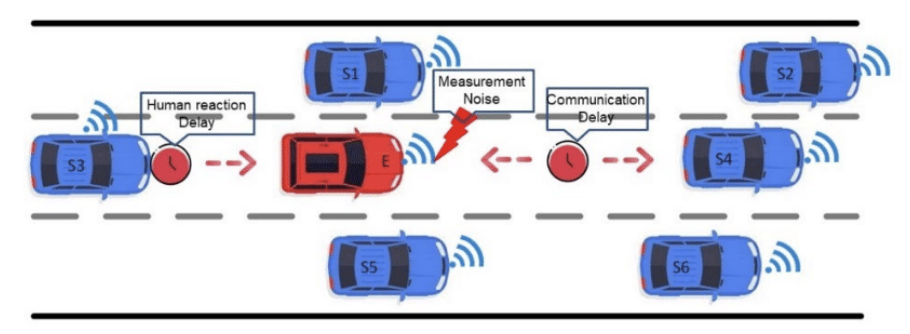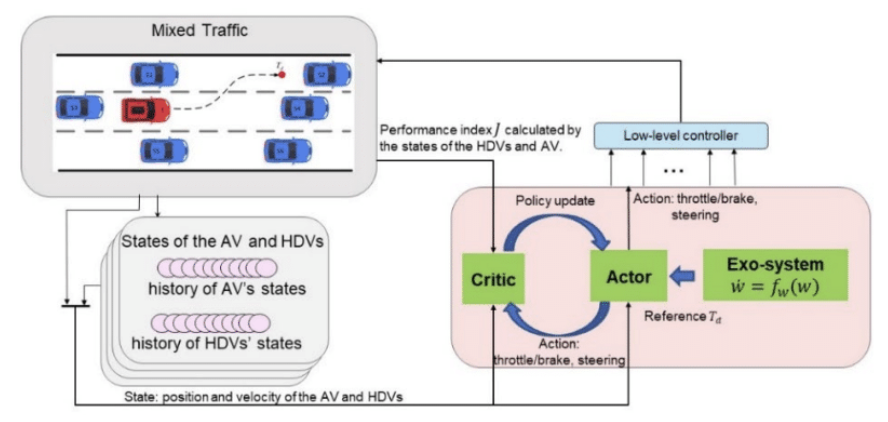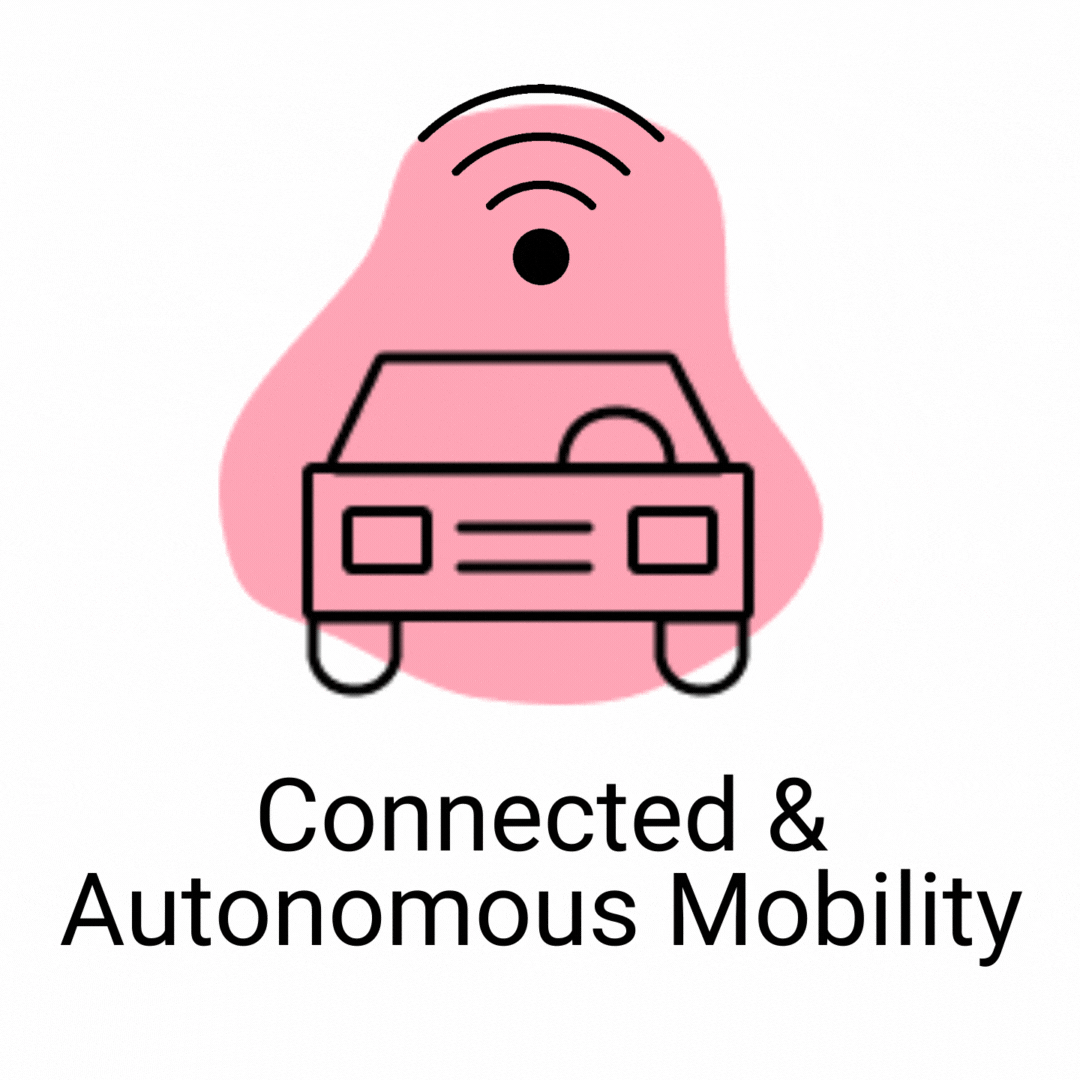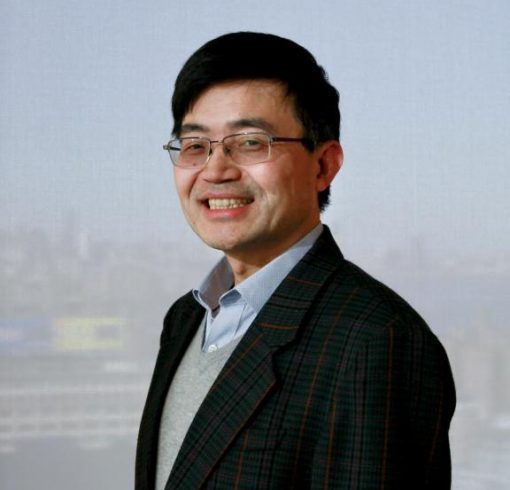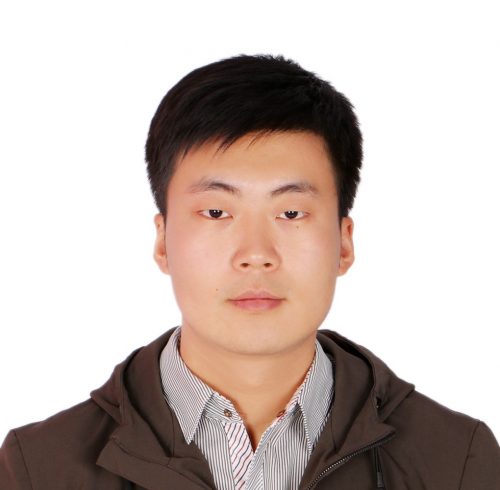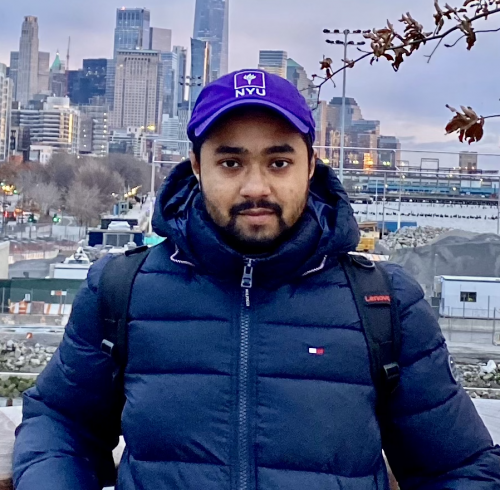Overview
Inappropriate lane changes are responsible for one-tenth of all accidents, due to human drivers’ inaccurate estimation and prediction of the surrounding traffic, illegal maneuver, and inefficient driving skill. Autonomous lane changing is regarded as a solution to reduce these human errors. At present, there are many obstacles to developing automated lane-changing technology, including interactions between vehicles, complex routing choice, and interactions between vehicles and the environment. In this proposal, in order to improve safety and comfort in the presence of uncertainties and delays such as model uncertainty, sensor noise, communication and human reaction delays, we aim to develop innovative learning-based control methods for lane changing of connected and autonomous vehicles (CAVs) in mixed traffic consisting of both autonomous vehicle (AV) and human-driven vehicles (HDVs) based on reinforcement learning and optimal control techniques.
Building on our prior work on lane keeping and lane changing, this collaborative research project aims to take a significant step forward to develop innovative solutions for autonomous lane change maneuvers. This project aims to achieve three major objectives: (1) integrating reinforcement learning and (control) barrier functions to address safety-oriented constraints; (2) developing robustness analysis and robust redesign for connected and autonomous vehicles in the presence of uncertainties and time delay; (3) validating the proposed lane changing control algorithms with real-world trajectory data and SUMO testing under different environments in the presence of different vehicle mixes and driver uncertainties.
Research Objectives
This proposal will develop a learning-based control algorithm using reinforcement learning techniques and control barrier functions to develop a safety-oriented learning-based controller for lane changing. Many conventional reinforcement learning algorithms are applied in the transportation field for decision making, trajectory planning, or control of autonomous vehicles.
Apart from MATLAB-based computer simulation, the proposed research will be validated by simulating a traffic environment with an AV and multiple HDVs using the SUMO environment as follows:
- The Python-TraCI library will be used to interface a python script with a running SUMO simulation in order to implement the developed lane changing control algorithms;
- The imperfections such as communication delay, human reaction delay, human driving behavior instability, and other noises will be simulated in SUMO using a Python script to test the proposed methodologies.
- Multiple goals, including safety, comfort, and economic, will be considered, respectively. An objective function containing all the goals with different weights will be generated to satisfy the different preferences of the proposed model’s performance;
- The dataset provided by the Next Generation Simulation (NGSIM) Vehicle Trajectories, the High-SIM Data provided by USF CATS lab, and other realistic datasets will be used to generate realistic surrounding HDVs and a more realistic simulation environment to validate the capability and adaptivity of proposed methodologies in a complex and real-world environment.
SUMO-based simulation and implementation is a necessary intermediate step toward the transition of advanced lane changing control algorithms to practice for the wide deployment of self-driving cars in real traffic networks. This interdisciplinary project therefore provides an opportunity to train undergraduates and graduate students in both theory and applications of modern control theory, especially nonlinear control, and reinforcement learning through microscopic simulations in real-world test scenarios.
Related Media
